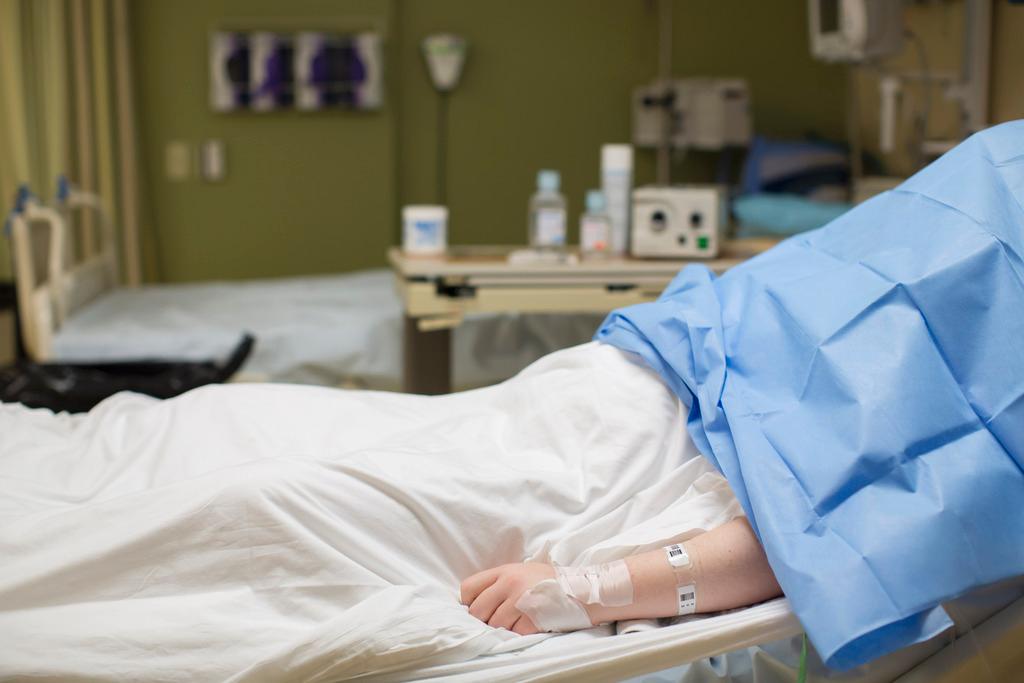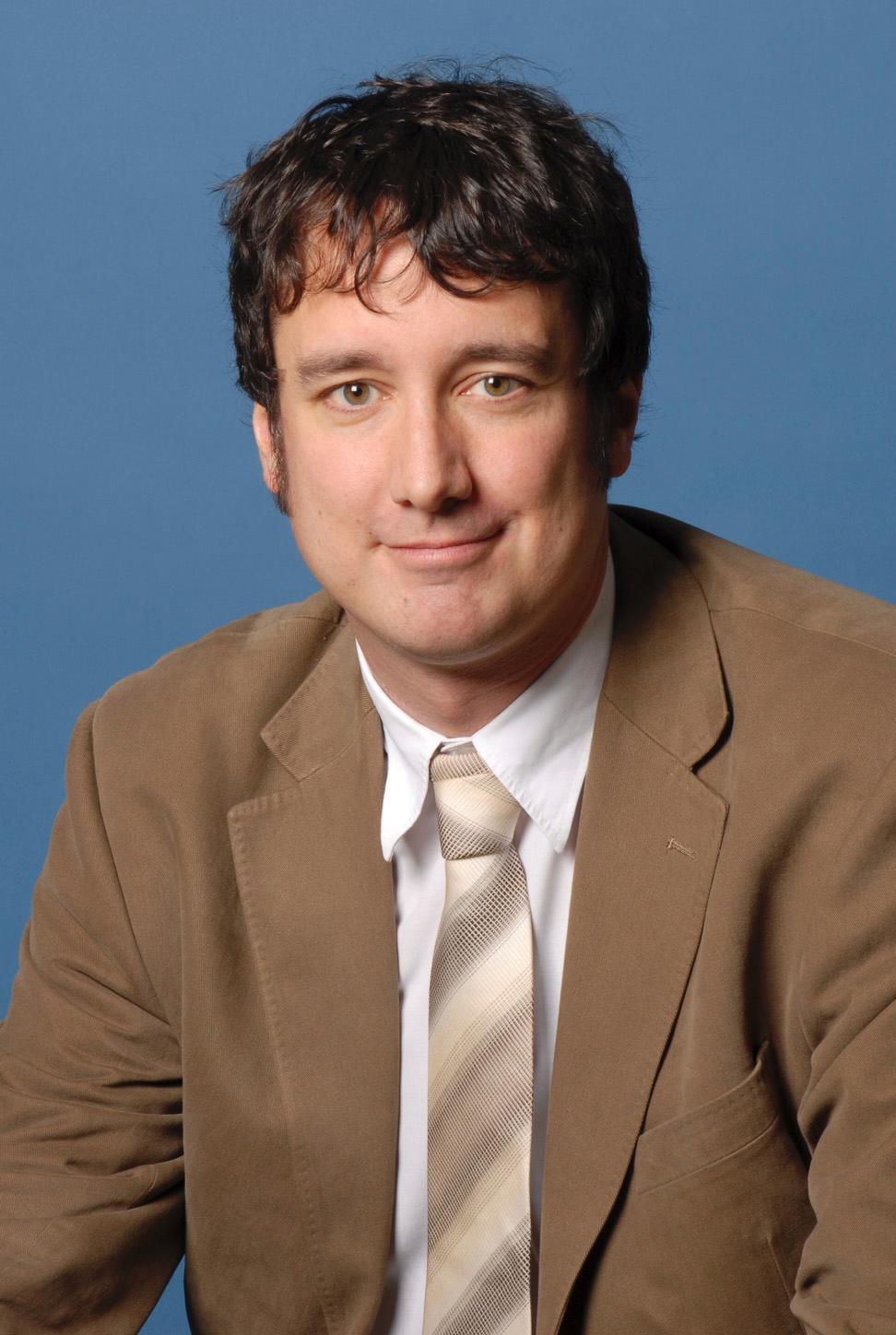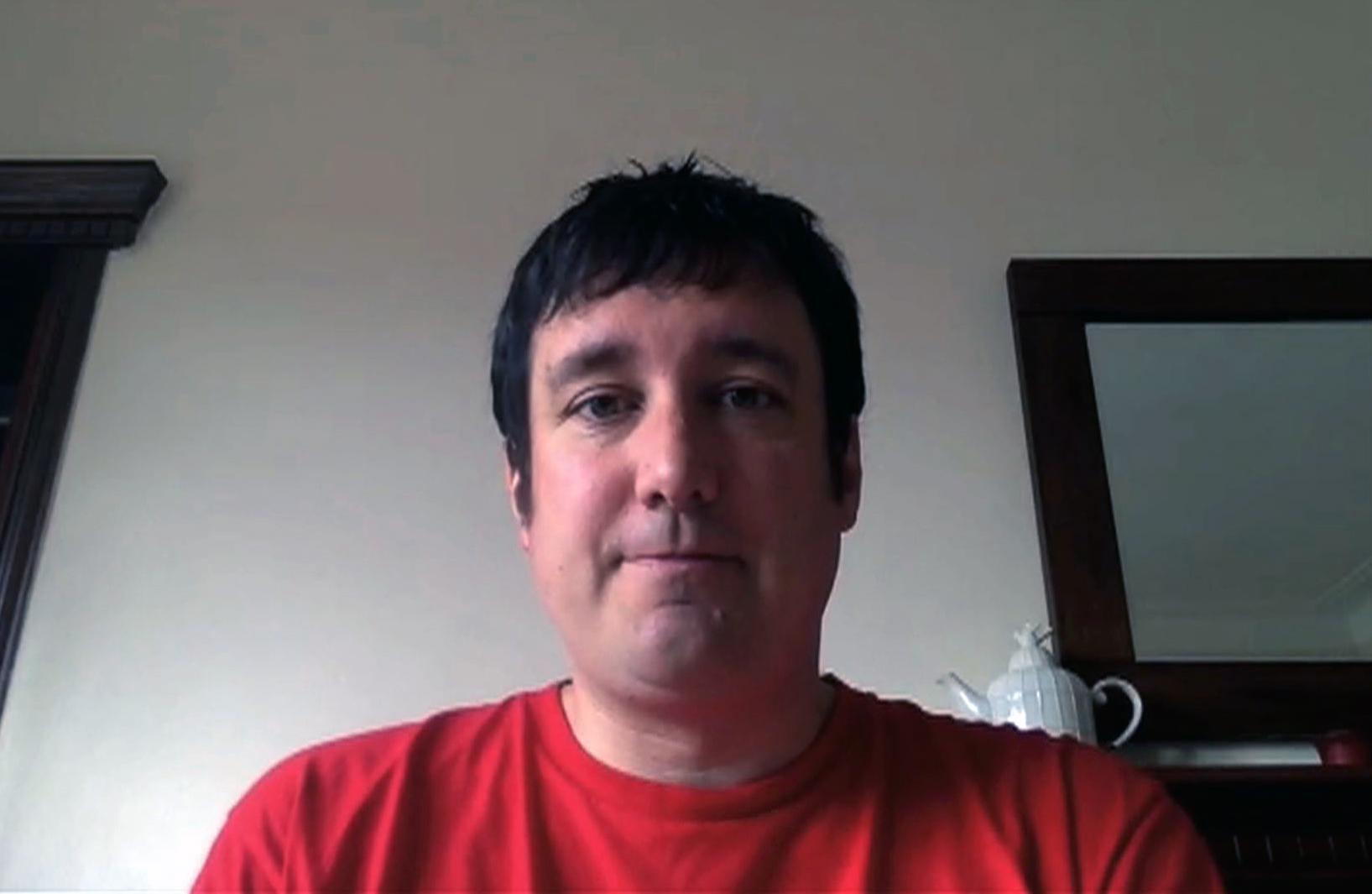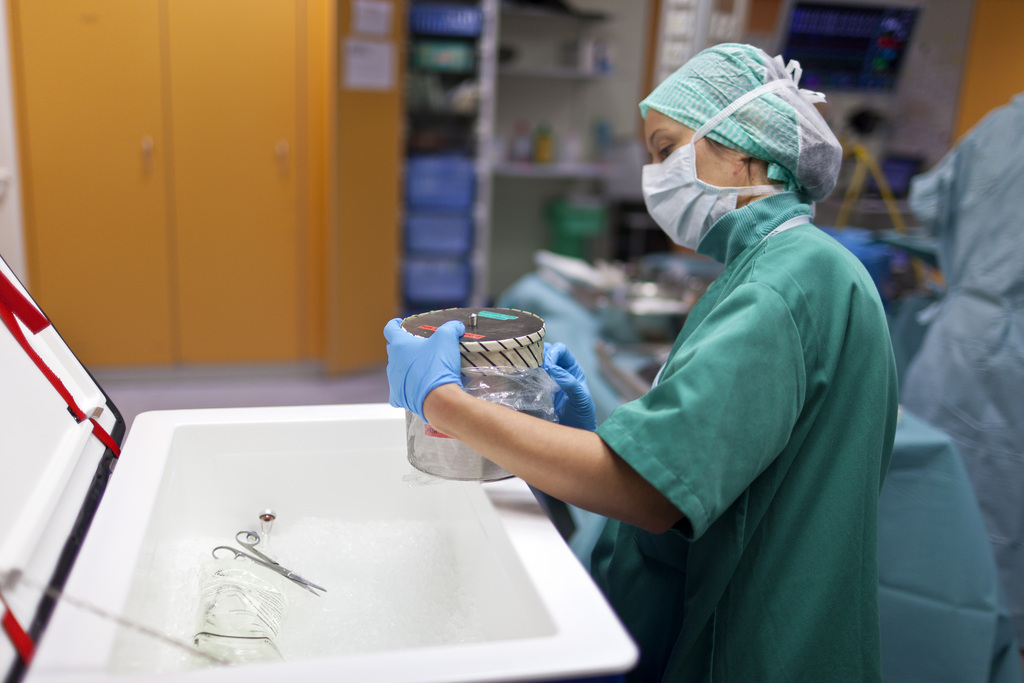The ethics of new organ donation methods

Is it ethical to use organs from people who have died with assisted suicide? Biomedical ethicist David Shaw believes it’s one of the ways to try and counter organ donor shortages.
Shaw specialises in the ethics of organ donation and transplantation in the Institute for Biomedical Ethics at the University of Basel. He is also a member of Britain’s Donation Ethics Committee, which advises the Department of Health on organ policy.
Donor cards alone aren’t enough, Shaw believes. Among other things, he questions why Switzerland doesn’t have a national donor registry which hospitals could consult to find out whether dying patients have expressed their wish to donate organs. Switzerland’s donor rate of 13.6 donors per million inhabitants is roughly half that of most other European countries.
swissinfo.ch: Is organ donation associated with a lot of problems from an ethical standpoint?
D.S.: In most cases organ donation takes place when someone is dead and the organs are of no more use to them. It’s something that can do so much good, yet there’s quite a lot of resistance to it, mainly coming from family members of those who have died. But I think that’s largely due to the fact that they’ve just lost a family member and they find it difficult to clearly see the potential benefits of the donation.

swissinfo.ch: As a researcher you’re trying to overcome veto of organ donation by family members. Can you ethically argue that what a patient wanted is more important than what a family wants?
D.S.: Well, yes, I think you can. Even if the person didn’t have a donor card, you’re not asking the family what they want done – although obviously that will come into it – you’re meant to be asking them what the person would have wanted.
Let’s assume the person was on the donor register. So they did want to donate their organs. There are three reasons why you should gently explain to the family why it’s better to respect that wish. The first one is simply that it was that person’s wish. If someone has a will and testament to be carried out legally after they’re dead, families can’t change that. I think it should be treated in the same way.
Second, there’s empirical evidence that shows that families who vetoed organ donation came to really regret that decision within a few weeks to a month.
And third, for each donation that doesn’t go ahead, someone might die, people might remain on dialysis for months or years, someone might not get the gift of sight back.
swissinfo.ch: You’ve come up with a concept for something called Personalised Organ Donation Directives. What’s involved?
D.S.: Personalised Organ Donation Directives serve two purposes. The first one is, you say which organs you want to donate, and you fill in what would be an electronic form. And you can also record a video. So you’re basically sitting talking to the webcam on your computer or on your phone, just dictating a short video saying to your parents or your wife or brother or sister, ‘Please respect my organ donation wishes’. Now it might seem a bit morbid when they receive that in an email, but the very fact that it’s quite an unusual thing to do will make people remember it.

More
Personalised Organ Donation Directives
swissinfo.ch: You’ve also proposed more radical solutions. For example, donations from patients who die through assisted suicide. How would this work, and what ethical issues would need to be considered?
D.S.: I’ll just say upfront I’m not saying that we should be killing people to take their organs. But Switzerland is one of the few countries in the world where several hundred people use assisted suicide every year. This is a situation where you have people who want to die, you know when they’re going to die, and many of them are probably registered organ donors. So it’s also more respectful to the people to let them do this final kind of parting gift to humanity.
The trouble when you have an idea like this is that some people might get a hold of it and say, ‘These crazy ethicists. They want to kill everyone and take their organs out.’ Not the case at all. I’m just saying, people are dying because we don’t have enough organs.
There are also ethical objections, that more people will choose assisted suicide because they think that they can save other people’s lives and they feel they’re a burden. The burden argument is used a lot in assisted suicide debates, and it’s not really very convincing. The bioethics literature is quite clear on that.
Another issue is that although assisted suicide is legal in Switzerland, the general attitude of hospitals and doctors in Swiss hospitals is they don’t really want to be involved in it. And that attitude might extend to people working in transplantation.
swissinfo.ch:An even more radical solution would be implanting human cells in a pig in order to grow human organs. How advanced is this research?
D.S.: It’s not there yet, but once the science starts moving a certain direction it’s good to start thinking about the ethical issues. Assuming that the science comes to fruition and comes into clinical use.
So let’s say Kenneth needs a new kidney. Under the current situation he would be on dialysis, he would go on the kidney waiting list, he’d be waiting several years possibly to get a kidney, and during that time he’d be suffering a lot of pain. And of course, if things get really bad he might die if he doesn’t get a new kidney.
If this technology comes to fruition, what we could do is take some of his skin cells and play with them genetically a little bit, and then inject those into a genetically modified pig embryo. The pig embryo would then be implanted in a mother pig, and the pig would then be born, and then once the pig was big enough you could remove its kidney. And the odd thing is – the helpful thing is – that the kidney wouldn’t be a pig kidney, it would be a human kidney that was a perfect genetic match for Kenneth. And that could then be implanted in Kenneth about six months after we initially took the skin cells from him. And unlike most donor organs, it’s unlikely to be rejected by the person’s immune system.
Now again, there are ethical objections to this new technique. Some people object to mixing human and animal cells, either because they think we’re special or because they think that’s against the animal’s interests. But people have been having pig valves put inside them for their heart for decades now, and no one says that’s unnatural and these people should die rather than have a little bit of pig inside them.
And obviously animal rights people would be saying you shouldn’t be killing animals to save humans. And I have some sympathy with that, but with the way the world is today, millions and millions of animals are eaten every day.
And one more concern is that if you mix human and animals cells together and then transplant an organ from an animal into a person, there might be generation of some new virus that jumps from pigs across to humans. And obviously that’s more of a public health concern rather than a concern for the individual pig or the individual recipient of the organ.
swissinfo.ch: There have also been scandals having to do with organs being diverted to the wrong people on a list. How has that affected organ donation rates?
D.S.: In Germany there actually were financial incentives in place for doctors at transplant centres related to the number of transplants, the number of patients of theirs who actually received transplants. And it seems to have led to some doctors in Germany manipulating test results in order to make the patient’s condition seem worse, so that they got higher priority for an organ. Whenever something like that happens it’s not bad simply because they did something unethical and people who should have gotten organs didn’t get organs. It’s also bad because it weakens people’s faith and trust in the entire organ donation and transplantation system.
swissinfo.ch: What do you see as the most promising way to increase organ donation in Switzerland?
D.S.: Create a central donor registry, encourage people to sign up to it, and stress the number of lives that can be saved.
It’s interesting in Switzerland, but because of the way the transplantation law was drafted, the government’s position is that they’re neutral on it. I think it’s simply because organ donation is such a personal issue and it comes to the heart of family relationships and the nature of death. But I think if you want to improve organ donation rates and save people’s lives and improve people’s lives, you need to say that it’s a good thing, even if there is obviously no obligation for people to donate their organs after they’re dead.
Status quo
On October 17, 2014, the Committee for Social Security and Health of Switzerland’s House of Representatives decided not to recommend adoption of a system of “presumed consent” which assumes that all citizens want to be considered as organ donors unless they specifically state otherwise during their lifetime. The committee voted 16 to eight to retain the current system requiring that consent be obtained in order to take a deceased person’s organs. The Senate had also rejected the change in an earlier vote.
The House committee acknowledged that the donation rate in Switzerland – 13.6 donors per million inhabitants, half that of other European countries – is too low, but felt that the goal of increasing the donor rate to 20 by 2018 would better be reached by following the action plan “More organs for transplantation” proposed by the Swiss cabinet. The plan includes obligatory communication training for hospital personnel charged with approaching relatives about organ donation.

In compliance with the JTI standards
More: SWI swissinfo.ch certified by the Journalism Trust Initiative














You can find an overview of ongoing debates with our journalists here . Please join us!
If you want to start a conversation about a topic raised in this article or want to report factual errors, email us at english@swissinfo.ch.